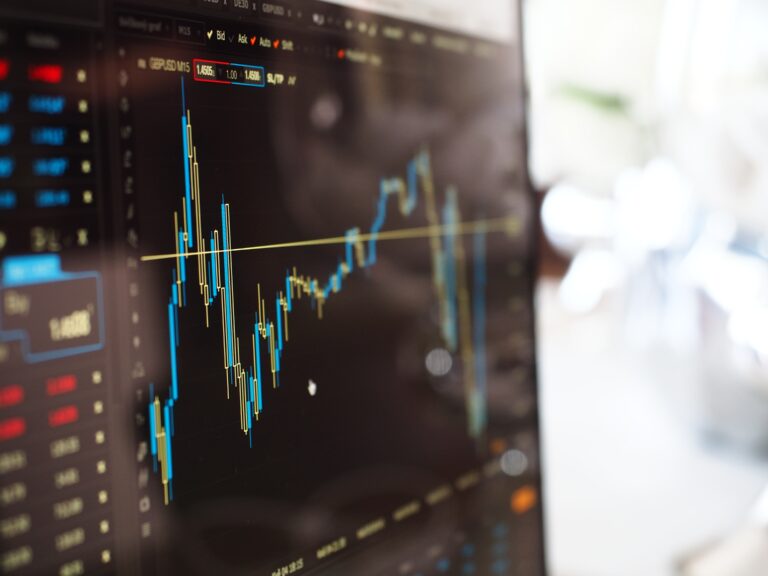
Morning Brief – Lekke to be lekke
An Afrikaans ish phrase meaning it’s nice to be nice.. or so I’m told. In the times we find ourselves in, there seems to be value in examining exactly how nice is nice enough. Take the UK government’s call for citizens to volunteer to support the NHS. As Boris Johnson spoke to the nation yesterday we learned the government had expected 250,000 volunteers in a number of days. In less time than the government had expected, some 405,000 pledges to help had been received. That’s fantastic and I thank those that have been able to do so for their commitment. Unfortunately if we take things like this in isolation we approach our analysis of the population with rose-tinted spectacles.
As Rishi Sunak explained in his defence of the lack of financial coverage for self-employed workers there remains the concern that individuals and corporations will take advantage of the provisions that are being put in place to cushion the public through the Coronavirus pandemic. It’s unavoidable and a shame given that every pound borrowed by the government to fund these unprecedented spending plans will leave us with an enormous fiscal deficit that must be paid back. Look elsewhere: there was a huge spike in Companies House registrations for limited companies and individuals to be sole traders as covid-19 emerged as a pandemic. Whilst some of these certifications will have been granted to pursue philanthropic efforts, the vast majority of them are, I’m sure, to take advantage of people’s fear during this time. Testing kits for thousands of Pounds, toilet rolls for 1000% of their normal prices and hand sanitiser that looks set to rival saffron’s per unit cost are testimony to this belief!
The question of how nice is nice enough is set to become even more important for South Africa in the next 48 hours. We’ve been talking about Moody’s rating decision in South Africa for a long time. Since October when their last decision was to issue a negative outlook ahead of the Q1’20 budget speech, this Friday has been a focal point for the Rand. South Africa’s debt has been held at ‘junk’ status by two of the three major ratings agencies, Fitch and S&P. The classification by Moody’s, as all you Rand buyers and sellers will know, is Baa3- i.e. investment grade by the skin of its teeth. Given the worsening of South Africa’s credit outlook amidst the shutdown that comes this Friday it seems inevitable that a downgrade will take place.
Most economic commentaries out there authored domestically and internationally focus upon two themes. 1) Should and could Moody’s downgrade in good conscience given the state of the global political economic amidst Coronavirus; 2) does a downgrade even matter given everything else that’s going on? I find these two strains of thought defeatist in principle with the second more offensive than the first. Let’s address the first one: for every borrower of money, the debtor, there is a lender of money, the creditor. The very point of these ratings agencies is to create a level of consistency and transparency to lubricate the credit market. If an inevitable downgrade was to be held up it could therefore have the very effect of constraining the lending market, making the situation even worse: not only would South Africa’s borrowing costs rise further there wouldn’t be any money on offer to borrow. So, it wouldn’t be that lekke to be lekke in this scenario. To address the second point: Yes! It will still matter!
The yield on a 10-year South African note has spiked above 12%. That means that money in South Africa is the most expensive to borrow since 2002. At a time when the government is borrowing to fund the shutdown and the (privatised!) South African Reserve Bank is buying assets such lending rates are damaging to the real economy. Given that Eskom doesn’t generate enough revenue to cover its interest payments in times of ‘normal’ borrowing at rates circa 7%, it seems inevitable that it cannot finance its debt at these levels. The concern around Moody’s downgrade is that index linked bonds frequently have a condition that they must only buy ‘investment grade’ bonds meaning that if South African debt loses its last claim to non-junk status is must be immediately dumped into the market.
The magnitude of such debt is estimated, but not known with absolute certainty, to be USD 15bn. I fear that upon realisation of the junk status tomorrow it will not be a ‘buy the rumour sell the news’ non-event given the legal requirement to flog the debt. Yields should therefore climb higher from their already lofty heights. The Rand should spike lower simultaneously. Eventually, the inexpensiveness of the currency combined with the high rate of return for buying it should lead to a correction but, given the uncertainty in the global market at the moment, that correction could be a long time coming and fragile. Those with an exposure to Rand should set price objectives and have a trading strategy in place to take advantage of and also defend themselves from the volatility likely to come with tomorrow’s announcement. Our desk remains fully staffed and is extending our full range of services and we’d be happy to put such a strategy in place for you.
Discussion and Analysis by Charles Porter

Click Here to Subscribe to the SGM-FX Newsletter
Related Insights

Daily Brief – Alphabet
Alphabet Funding and funding AI development has never been easier. Alphabet parent of Google sought USD 20 billion this week by way of a bond issue to fund its AI push and the maturity was set at 100 years. Despite the size and the length of the maturity, the bond issue attracted a staggering USD […]

Daily Brief – Gold and Silver
Gold and Silver Due to the vertiginous moves in both these precious metals all markets are more than usually fixated on the price action at present. Yesterday, both steadied and clawed back some of the recent losses with Gold rising almost 6% and Silver 10% to USD 4921, and USD 86.70 respectively at the time […]

Daily Brief – British Pound
British Pound The sudden unanimity of support for the beleaguered PM and cessation of anti PM Starmer briefing by members of his cabinet can only mean one thing: PM Starmer threatened a John Major moment (back me or else) and said he would call a General Election unless they offered a unilateral show of support. […]



 Humphrey Percy
Humphrey Percy